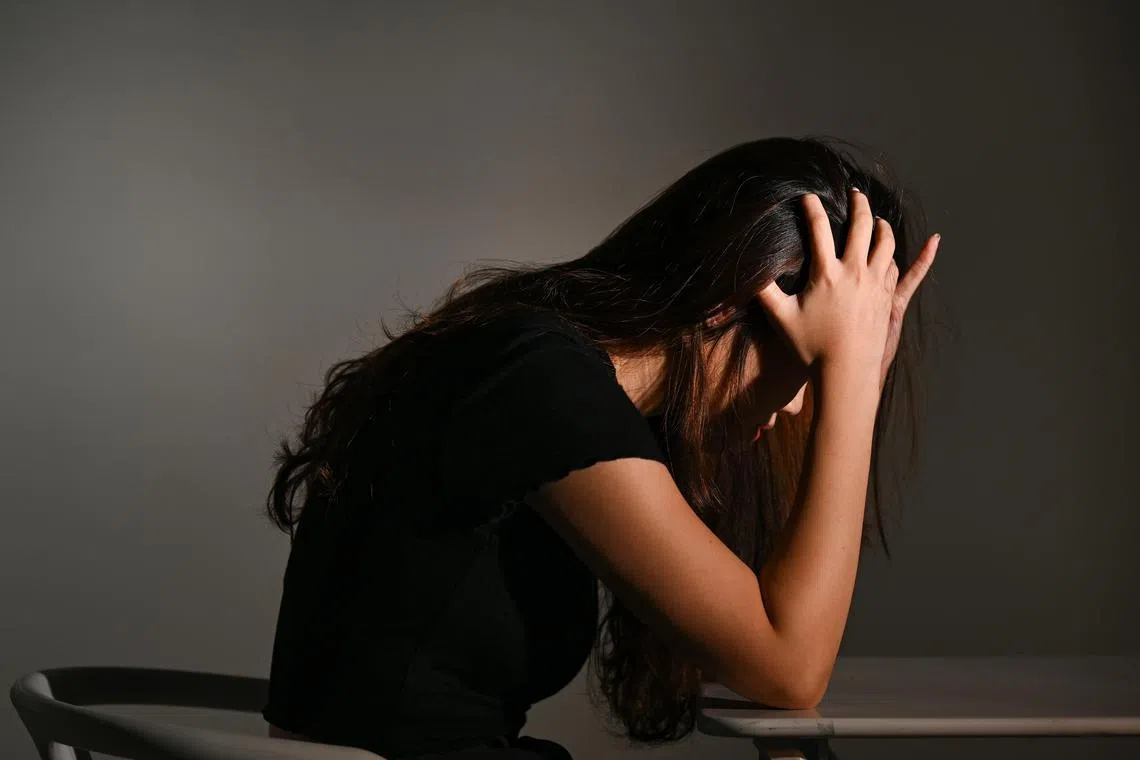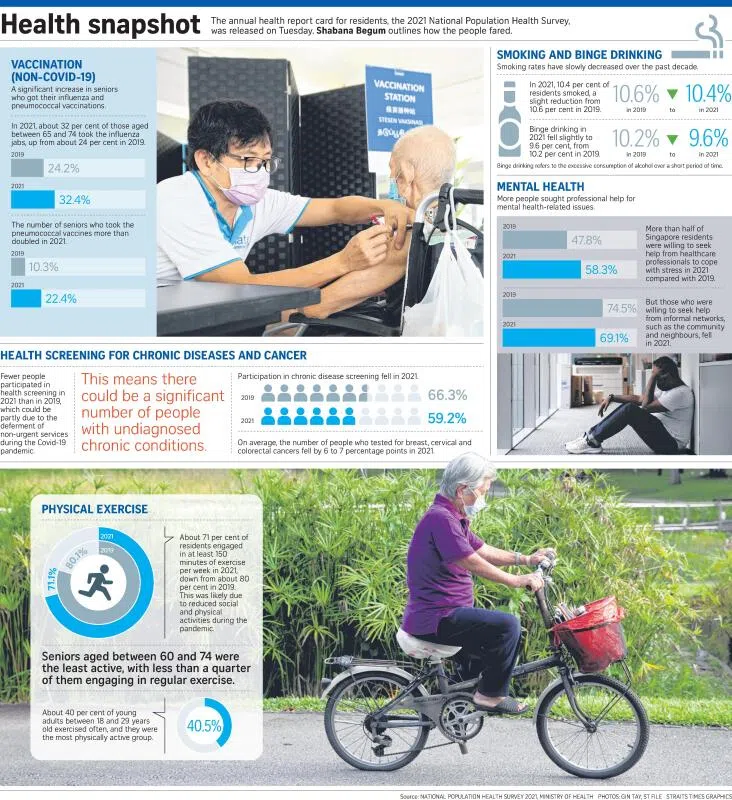More Singaporeans willing to seek help from mental health professionals during pandemic
Sign up now: Get ST's newsletters delivered to your inbox

Singaporeans are more likely to seek help from informal networks than healthcare professionals.
ST PHOTO ILLUSTRATION: LIM YAOHUI
Follow topic:
SINGAPORE - Singaporeans were less queasy around mental illness during the Covid-19 pandemic, with 58.3 per cent of residents being willing to seek help from therapists in 2021, compared with 47.8 per cent in 2019.
Despite this, Singaporeans remain more likely to seek help from informal networks than healthcare professionals, with 69.1 per cent seeking help from sources like friends.
Additionally, the proportion of residents reaching out to their friends and family dropped from 74.5 per cent in 2019.
This was likely due to increased vigilance to personal health during the pandemic, which made Singaporeans keep more to themselves, said the spokesman for the Ministry of Health (MOH) at the briefing for the latest National Population Health Survey on Tuesday.
“More effort is required to strengthen informal and community support,” said the spokesman.
The National Population Health Survey is an annual population health survey series jointly conducted by MOH and the Health Promotion Board to track the health and risk factors of Singapore residents aged 18 to 74.
The survey, which polled residents between July 2020 and June 2021, found differences in willingness to seek mental health help according to age and gender.
Women, at 59.8 per cent, were slightly more likely to seek mental health help in general than men, at 56.8 per cent.
In terms of getting professional help, only 45.8 per cent of older adults between 60 and 74 years old were willing to seek help from healthcare professionals, making them the age group least willing to seek help. And 67.7 per cent of those aged 30 to 39 were willing to get help, making them the group most likely to seek help.
The findings in the National Population Health Survey on mental health support also coincided with a spike in mental health-related conditions during the pandemic.
A study by the Institute of Mental Health conducted between May 2020 and June 2021 found that around 13 per cent of more than 1,000 participants reported symptoms of anxiety or depression during the pandemic.
In the two weeks before they were interviewed, 8.7 per cent of respondents met the criteria for clinical depression while 9.4 per cent met the criteria for clinical anxiety. Out of all respondents, 4.8 per cent had both anxiety and depression.
In addition, 9.3 per cent met the criteria for mild to severe stress while 7.6 per cent met the criteria for clinical insomnia.
Responding to these findings, MOH said it remains committed to improving its suite of mental health support initiatives.
They include community mental health services, increasing awareness on mental health, more checkpoints to enable early identification, timely assessment of mental health conditions and intervening appropriately.
Employers in the public and private sectors have also been placing greater importance on protecting the mental health of workers under pressure in a pandemic, said a separate report by The Straits Times in August 2021.
In the private sector, at least four companies have beefed up mental health support since the start of the pandemic. For instance, food catering company Sodexo has rolled out 12 mental wellness webinars since July 2020 to combat this trend.
MOH also set up an Interagency Taskforce on Mental Health and Well-being in July 2021 to review and improve existing mental health programmes.
The task force, which comprises more than 30 government agencies and members from the public and private sectors, concluded a public consultation recently, gleaning feedback that will be used to refine mental health programmes in Singapore.


